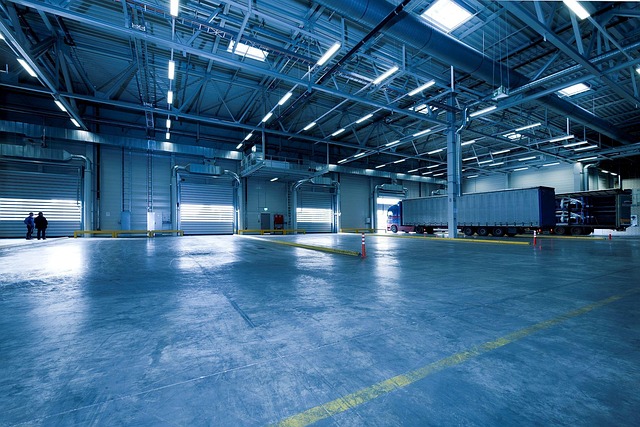Warehouses are evolving into crucial real estate assets due to their central role in supporting the online shopping boom. E-commerce's rapid growth drives demand for ample storage and efficient inventory management, transforming warehouses into powerful tools for order fulfillment, logistics, and delivery networks. Advanced technology integration optimizes processes, reduces costs, and enhances customer experiences. Strategic locations near transportation hubs enable national-scale distribution. To meet e-commerce demands, real estate strategies must prioritize scalability and versatility, adopting modular layouts and smart technologies like ASRS, with strategic investments near transportation hubs for sustainable operations. Efficient logistics through optimized warehouse space enhance productivity, reduce handling times, minimize damage, and meet soaring customer demands in the digital marketplace.
Warehouses are transforming into vital components of e-commerce’s rapid expansion, serving as the backbone that supports online retail’s booming growth. As businesses rush to capitalize on the digital shift, efficient and scalable storage solutions become paramount. This article explores the critical role of warehouses in today’s dynamic market and delves into innovative real estate strategies that optimize space, enhance logistics, and ensure seamless operations for e-commerce enterprises.
Warehouses: The Backbone of E-Commerce Growth

Warehouses are playing a pivotal role in the rapid expansion of e-commerce, serving as the crucial backbone that supports this digital revolution. With the surge in online shopping, businesses are turning to vast, strategic warehouse spaces to store and manage their ever-growing inventory efficiently. The real estate sector has witnessed a significant shift as developers and investors recognize the immense potential of these industrial facilities.
These warehouses offer more than just storage; they enable rapid order fulfillment, seamless logistics, and last-mile delivery networks. E-commerce giants and startups alike are investing in state-of-the-art warehouses equipped with advanced automation and technology to streamline operations, reduce costs, and enhance customer experiences. The strategic location of these facilities, often near major transportation hubs, further facilitates the efficient distribution of goods across vast geographic areas.
Real Estate Strategies for Scalable Storage Solutions

Warehouses are no longer merely storage spaces; they’ve evolved into pivotal assets in the e-commerce landscape. To support the booming online retail sector, real estate strategies must focus on scalability and versatility. This involves optimizing existing structures to accommodate growing inventory levels while also considering innovative designs that facilitate efficient operations.
One approach is adopting modular warehouse layouts, which allow for easy expansion or reconfiguration as business needs change. Additionally, implementing smart technology like automated storage and retrieval systems (ASRS) can enhance warehousing efficiency, reducing labor costs and increasing overall productivity. Real estate investments in strategic locations near transportation hubs and with ample space for future growth are also crucial for sustainable e-commerce warehouse operations.
Efficient Logistics: Optimizing Space in Booming E-Commerce

Efficient logistics are a cornerstone of successful e-commerce operations, and optimizing space within warehouses plays a pivotal role in this regard. With the exponential growth of online shopping, businesses are constantly seeking ways to maximize their storage potential. Strategic real estate utilization involves implementing compact shelving systems, vertical stacking techniques, and intelligent inventory management software. These strategies not only save valuable square footage but also streamline order fulfillment processes.
By adopting efficient logistics practices, e-commerce companies can reduce handling times, minimize product damage, and improve overall operational productivity. Optimizing space ensures that high volumes of goods can be stored and managed effectively, allowing for faster shipping and delivery to meet the ever-rising customer demands in the digital marketplace.






